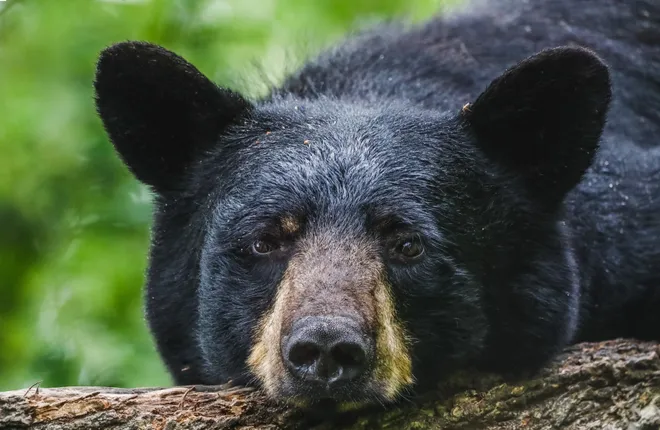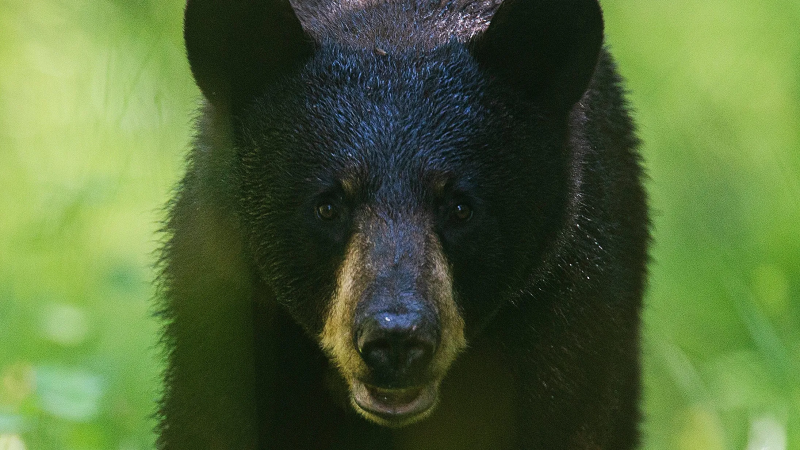Rare black bear spotted in southern Illinois
You’re probably never going to spot a family of black bears in Illinois, but you may get the chance to catch a glimpse of the majestic beast every once in a while. If you’re lucky.
The Jackson County Animal and Rabies Control reported a black bear sighting on Monday, making it the sixth bear to make its way across the Prairie State in the past 16 years.
This bear was spotted in southwest Illinois in Jackson County, which is located 92 miles southeast of St. Louis. Randy Hines, a Jackson County resident, shared exclusive video footage with a local news station of the bear roaming though his yard. Residents were warned to avoid approaching or surprising the bear.
Black bears used to be ‘common’ in the state, officials say

Ursus americanus “Black bears” were once common in the area but were eliminated from the region in 1870 before being designated as a “protected species” in 2015, according to the Illinois Department of Natural Resources.
Black bears can not be “hunted, killed, or harassed” unless there is an imminent threat to a person or property is detected. Anyone who comes into contact with a black blear in Illinois is encouraged to contact the Department of Natural Resources to learn about ways to address potential threats.
While there are currently no resident populations of black bears in the state, there is always the possibility that a stray black bear may make its way to Illinois from Missouri or Wisconsin, where there are existing black bear populations, the agency says.
Here’s a look at black bear sightings over the years:
- July 2024
- June 2020
- June 2019
- May 2014
- June 2009
- 2008
"Depressed" bear:Stop taking selfies with it, Florida sheriff's office tells drivers
How to handle an encounter with a black bear
First, do not run or try to play dead, said the agency. In the unlikely occasion the bear does try to make contact, the agency said to attempt to fight it off.
"Remain calm," Maggie Peikon, the manager of communications for the American Hiking Society, previously told USA TODAY. "I know it's a scary situation."
Peikon also advised that, if the bear does attack, protect your head and neck. Get as low to the floor as possible so it's harder for the bear to roll you over and have access to any vital organs.
"You don't want to run, and you don't want to turn your back on a bear," she said.
If a person does stumble a bit too close for comfort, the agency advises them to do the following:
- Make noise to avoid surprising the bear.
- Do not approach the animal or go near it.
- If the bear approaches you, look as big as possible and stand your ground. Raise your arms as high as possible and slowly back away from the animal.
- Drop any food you might have on you
- Get into a building

"A black bear is not likely to attack a person unless it feels trapped or provoked," the agency stated. "A bear may swat at the ground or surrounding vegetation, lunge toward you, vocalize, blow air out of its mouth or pop its jaws. These defensive behaviors are used to warn you to move away."
Disclaimer: The copyright of this article belongs to the original author. Reposting this article is solely for the purpose of information dissemination and does not constitute any investment advice. If there is any infringement, please contact us immediately. We will make corrections or deletions as necessary. Thank you.






